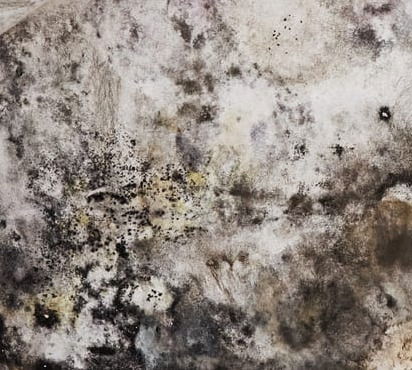Does Paint Go Bad? The Truth About Expired Paint

Key Features
- Shelf Life Varies by Type: Latex, oil-based, and chalk paints have different shelf lives based on ingredients and storage conditions.
- Storage Tips to Extend Paint Life: Proper sealing, stable temperature, and keeping cans off the floor help preserve paint longer.
- Signs of Expired Paint: Foul odor, mold, thickening, and separation are indicators that paint has gone bad and shouldn’t be used.
Does Paint Expire?
When it comes to paint, many of us have leftover cans stored away for future touch-ups or projects. But does paint go bad? Understanding the lifespan of paint, how to recognize expired paint, and when it’s still safe to use can help you avoid painting mishaps and keep your projects looking their best. Let’s dive into the facts about expired paint and answer some commonly asked questions about paint storage, shelf life, and quality.
How Long Does Paint Last?
The lifespan of paint depends on the type and how it’s stored. Here’s a breakdown:
- Latex or Water-Based Paints: Typically lasts 2-10 years if stored properly in a sealed container. Unopened, these paints can last up to 10 years. Once opened, you’re looking at closer to 2-5 years.
- Oil-Based Paints: Oil-based or alkyd paints have a longer shelf life, often between 10-15 years, as long as they’re kept in a sealed container.
- Chalk and Milk Paints: These decorative paints, often used for furniture or specialty finishes, have a shorter shelf life, usually only 1-2 years, due to natural ingredients that tend to spoil.
How to Store Paint Properly to Extend Its Life
To get the most out of your paint, storage is key. Follow these tips to keep paint fresh for as long as possible:
- Seal the Can Tightly: After using paint, seal the lid securely to prevent air from getting in. Placing a plastic sheet over the opening before putting the lid on can help create a tighter seal.
- Store in a Cool, Dry Place: Temperature fluctuations can break down paint, so keep it in a place with a stable temperature, like a basement or utility closet.
- Avoid Freezing: Latex paint is water-based and can freeze, damaging the paint’s composition. If paint has frozen, check for lumps or separation before using it.
- Keep It Off the Floor: Place paint on shelves to prevent moisture absorption from concrete floors, which could rust the can and cause contamination.
Things to Know
- Paint Has a Limited Shelf Life: Latex lasts 2-10 years, oil-based up to 15, and chalk paints only about 1-2 years.
- Watch for Signs of Expiration: Odor, clumping, and mold are signs that paint has gone bad.
- Safe Disposal is Important: Check local recycling programs or disposal guidelines for environmentally-friendly paint disposal.
Signs That Paint Has Gone Bad
If you’re wondering, “Is my paint still good?” check for these signs:
- Odor: Expired paint often has a sour or rancid smell. If it smells unusual or rotten, it’s likely gone bad.
- Texture: Paint that has thickened, formed clumps, or shows signs of separation, even after stirring, is likely expired.
- Mold or Mildew: Mold or mildew can form in paint, particularly if it’s been exposed to moisture. Black or gray spots in the paint indicate contamination.
- Can Condition: If the can is rusted, swollen, or leaking, the paint inside may be compromised.
If you notice any of these signs, it’s best not to use the paint, especially for visible areas.Can You Still Use Old Paint?Yes, in some cases. Here’s how to determine if your old paint is salvageable:
- Test a Small Patch: If the paint looks okay after stirring and has no foul odor, try testing a small patch on cardboard or another disposable surface. Let it dry and check the color and texture.
- Strain It: If the paint has minor clumps, straining it through a paint filter or mesh can help remove them and give the paint a smoother consistency.
- Only Use for Priming or Base Layers: If you’re unsure about the paint’s longevity, you can use it for undercoats or primer layers, especially if it’s not in a highly visible area.
How to Dispose of Expired Paint Properly
Paint disposal needs to be done responsibly to prevent environmental harm. Here’s a quick guide:
- Latex or Water-Based Paint: Remove the lid and allow the paint to dry completely. Once dry, you can dispose of it with your regular trash in most municipalities.
- Oil-Based Paint: This is considered hazardous waste. Take oil-based paint to a hazardous waste disposal site or check if your local waste management offers paint recycling programs.
- Recycling Centers: Many areas have recycling centers that accept old paint for safe disposal or repurposing. Look for programs like PaintCare to find locations near you.
Tips to Avoid Having Too Much Leftover Paint
If you frequently have excess paint, there are a few ways to minimize waste and prevent leftover paint from going bad:
- Calculate Paint Coverage: Use an online paint calculator to estimate the amount of paint needed based on room size and surface type.
- Buy Smaller Quantities: For touch-ups or small projects, opt for sample-size containers instead of full gallons.
- Mix Leftover Paint: Combine similar colors of leftover paint for use on base coats or primer layers on future projects.
In Our Experience
"Working with paint regularly, we’ve seen how proper storage can greatly extend its life. We always advise sealing the lid tightly and keeping cans in a cool, dry area. It’s tempting to stash paint in a garage, but temperature fluctuations can ruin it. And don’t rely on expired paint for high-visibility areas; the color and finish may not match up. Testing a small patch first will save time and ensure that your paint is still up to the job."
Common Questions About Expired Paint
1. Can expired paint be harmful to use?
Using paint that has developed mold, mildew, or a rancid odor can release unhealthy fumes, especially in poorly ventilated areas. It’s better to avoid using paint with signs of contamination.
2. How can I tell if old paint will still match my walls?
Older paint might slightly change color over time. Test it on a small patch first to check for any color variations, as it may not blend seamlessly with an existing wall color.
3. Does thinning old paint with water or paint thinner help?
For latex paint, a small amount of water can help revive it, but this only works if the paint is not too far gone. For oil-based paint, use a paint thinner, but only in small amounts to maintain the paint’s integrity.
Table: Typical Shelf Life of Different Paint Types
| Paint Type | Shelf Life (Unopened) | Shelf Life (Opened) |
|---|---|---|
| Latex or Water-Based | 10 years | 2-5 years |
| Oil-Based | 15 years | 3-5 years |
| Chalk and Milk Paints | 1-2 years | Less than 1 year |
In Summary
Understanding if paint goes bad and how to handle expired paint can save you time, money, and frustration on your projects. By knowing how to store paint, identify signs of spoilage, and dispose of it properly, you can make the most of your paint supplies and ensure beautiful, long-lasting finishes. Next time you reach for that old paint can, you’ll know just what to do!
Do You Have Questions? Give Us A Call With Any & All! 503-389-5758
-
People Also Ask:
Does dark paint make a room feel smaller?
Dark paint can make a space feel smaller by absorbing light, but it also creates depth and coziness, ideal for certain room types and lighting setups.
Can dark colors actually make a room appear larger?
Surprisingly, yes. When used thoughtfully, dark colors can add depth, making walls feel further away and giving a room a more expansive feel.
What rooms work best with dark paint?
Dark colors are great in rooms like bedrooms, bathrooms, and living rooms where they create intimacy. High light availability makes them especially effective.
-
SUBSCRIBE TO OUR BLOG: Stay informed with the latest in Painting and DIY projects by subscribing to Lightmen Painting. Get insights, tips, and more delivered straight to your inbox. We would also love to know what you would like to read about, leave thoughts on where we should go next. Interests, Topics, Ideas, all are welcome.
Get $3000 in personal assistant credits from Magic .com
^ Click Our Logo Above To Redeem ^
If your in the Portland, Or. area and need advice or a free no obligation estimate call us at 503-389-5758 or email scheduling@lightmenpainting.com
Shout Out:
Celebrating Times Property: Your Trusted Guide for Home Improvement Costs
From the team at Lightmen Painting, we extend our highest praise to Times Property for offering homeowners valuable insights into painting costs and other home improvement expenses. Just as we strive for excellence and transparency in our painting services, Times Property provides clear, detailed cost estimates to help homeowners make informed decisions. Their dedication to educating and supporting property owners aligns perfectly with our mission to deliver top-tier painting solutions that enhance and beautify homes.
Thanks for stopping by Lightmen Daily! Stay tuned for more practical tips and expert advice on making your painting projects flawless, from wall to floor!
Definitions
- Expired paint – Paint that has lost quality over time, often exhibiting a sour smell or clumpy texture.
- Shelf life – The length of time paint can be stored before it becomes unusable.
- Latex paint – A water-based paint with a typical shelf life of 2-10 years.
- Oil-based paint – A durable paint with a shelf life of 10-15 years, used commonly for high-wear areas.
- Chalk paint – A decorative paint with a short shelf life of 1-2 years, often used for furniture.
- Storage conditions – Factors like temperature, container sealing, and location that affect paint longevity.
- Clumpy texture – A sign of expired paint, where the paint forms lumps or does not mix smoothly.
- Paint disposal – Safe methods to dispose of unused or expired paint, preventing environmental harm.
- Recycling paint – Programs and facilities where expired or excess paint can be disposed of safely.
- Odor – An indicator of paint quality; a sour or rancid smell suggests the paint is expired.
Lightmen Painting Serving: Portland, Tigard, Lake Oswego, Tualatin, West Linn, Milwaukie, Sherwood, Happy Valley, Oregon City, Beaverton, Hillsboro, Gresham -Trade Partners-

